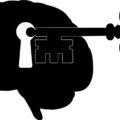Early Health History
I was vaccinated as a kid. I got ear infections, stomach bugs, and I had mononucleosis. I ate a pretty good diet for half of my childhood. My mom always made sure to have meat and vegetables at dinner. I had the flu in high school once, and once in college. In high school, I was very active in the marching band and I was a twirler. I was always a healthy weight and ate reasonably. I believe that I had the flu shot and meningitis shot in college.
In high school, I could take or leave any kind of food or sweets. However, in my second year of college, I crossed over the imaginary line of addiction with food. I began to binge eat, especially sweets. I noticed I was overeating but I couldn’t control it. Eventually, I found help in 12-step programs for my food addiction. I gained weight here and there over a few different times during college. However, since then, I’ve always been able to maintain a healthy weight by not bringing home my binge foods.
A Healthy Pregnancy but a Difficult Postpartum: No Sleep, Anxiety, Suicidality, and a Whole Bunch of Medications
In November 2020, I had my baby.
I took high dose vitamin C throughout my pregnancy and had a very healthy pregnancy and birth. It was supposed to be at the birth center, but that fell through when I tested positive for COVID. I forgot to pack my vitamin C when I went to the hospital, which I think may have affected me. At the hospital, I only got 4 hours of sleep over two days. On the third day, we came home. I got another two hours of sleep, but I became suicidal due to lack of sleep. So I had to go to the mental hospital on my baby’s third day of life.
I was put on Zoloft and Ativan and trazadone in the hospital. I came home from the hospital and things were okay. I had to get a medication adjustment by switching to Seroquel.
Due to my significant other not allowing me to make medical decisions for my baby, I went into fight or flight mode and I became suicidal again on December 7. I had to go back to the mental hospital for about two weeks. None of the anxiety medicine (Buspar, hydroxyzine, and maybe another one) I was taking away resolved the fight or flight. The anxiety was so bad that I could feel my insides shaking from head to toe. I couldn’t sleep at all for days. The only way I was able to sleep was when they finally prescribed me the extended release version of Seroquel. During both hospital stays, I did have a UTI and was treated with antibiotics. I don’t know which antibiotics I was given at the hospital. In February of this year, I had another UTI and was given Macrobid 100mg.
Crushing Fight or Flight Anxiety
When I came home from the hospital, my fight or flight anxiety was still so bad that I couldn’t even change the baby’s diaper. When I got some Xanax, I was finally able to get stuff done and function. My anxiety finally calmed down to where I could function without Xanax, however, I still had anxiety pretty bad.
On January 8, 2021, I started eating an all whole foods diet, nothing processed, no sugar, flour wheat, dairy, or high fat.
When I eat, I getting very foggy, despite eating a whole food diet. After posting in the orthomolecular group on Facebook, some people pointed out histamine intolerance (HI). So I’ve come to learn that I have HI and probably salicylate and oxalate intolerances too. I’m assuming this because the fogginess after I eat is bad. Also, after meeting with a nutritionist, she pointed out that my prolonged anxiety probably affected how I digest food, hence now causing me to have all these food intolerances. I have found research, a Harvard study, that prolonged fight or flight can cause HI/ digestion issues and actually cause digestion to stop. I have been unsuccessful with a low HI diet due to lack of freezer space/ stress of freezing/defrosting.
I’m also jaundiced. I can’t gain weight and my eye twitches every so often. I’m 5’7” and about 109/110 pounds. It is very scary how thin I am. You can see my sternum and my spine, despite eating three whole food meals a day that are weighed and measured, plus whole food snacks throughout the day.
I went to a natural chiropractor and he told me I was still in fight or flight, which didn’t surprise me because my anxiety was still bad, even though I could function. The anxiety is in my shoulders and is a constant throughout my day. It’s not like the head to toe fight or flight anxiety I had, but it is still bad. It caused me to have these intolerances that I’ve never had in my life. So I’ve officially been in fight or flight mode for over 6 months.
A few months ago, I tried taking Niacinamide for the anxiety. I took about 1500-2000mg a day for about 2-3 weeks but I didn’t notice any difference, so I stopped taking it since it was increasing my metabolism.
I have started a very low dose of thiamine HCL (1 mg- if that) but I noticed it is causing me to be foggy just like when I eat. This is very concerning to me because if I plan to titrate up, that means I’m going to be experiencing fogginess to a very great extent and pretty much all day. I do have magnesium and a B complex vitamin, and plan to supplement with potassium as well. I also magnesium lysinate. I’ve been drinking coconut water for potassium, however, I’ve slacked off because it was causing worse mind fogginess. I have magnesium malate in powder form, but I need to get an encapsulation system. I started the b-complex vitamin today. I have potassium chloride in powder form to supplement with if I don’t use the coconut water. I believe I’m taking about 12 mg of thiamine a day. I also take Nutrigold’s fish oil, and a prenatal vitamin.
My doctor allowed me to wean off Zoloft a few months ago. I’m currently taking Seroquel and Seroquel ER.
Will the thiamine control the anxiety once I’m able to take it in high doses and rid my food intolerance? My anxiety is situational and unfortunately, the situations aren’t going to change, so I’m curious if you think it will help me. Due to my body being in fight or flight mode and not rest and digest mode, I’m not sure the high dose thiamine will help, since my body isn’t absorbing any nutrients and I can’t keep weight on.
We Need Your Help
More people than ever are reading Hormones Matter, a testament to the need for independent voices in health and medicine. We are not funded and accept limited advertising. Unlike many health sites, we don’t force you to purchase a subscription. We believe health information should be open to all. If you read Hormones Matter, like it, please help support it. Contribute now.












